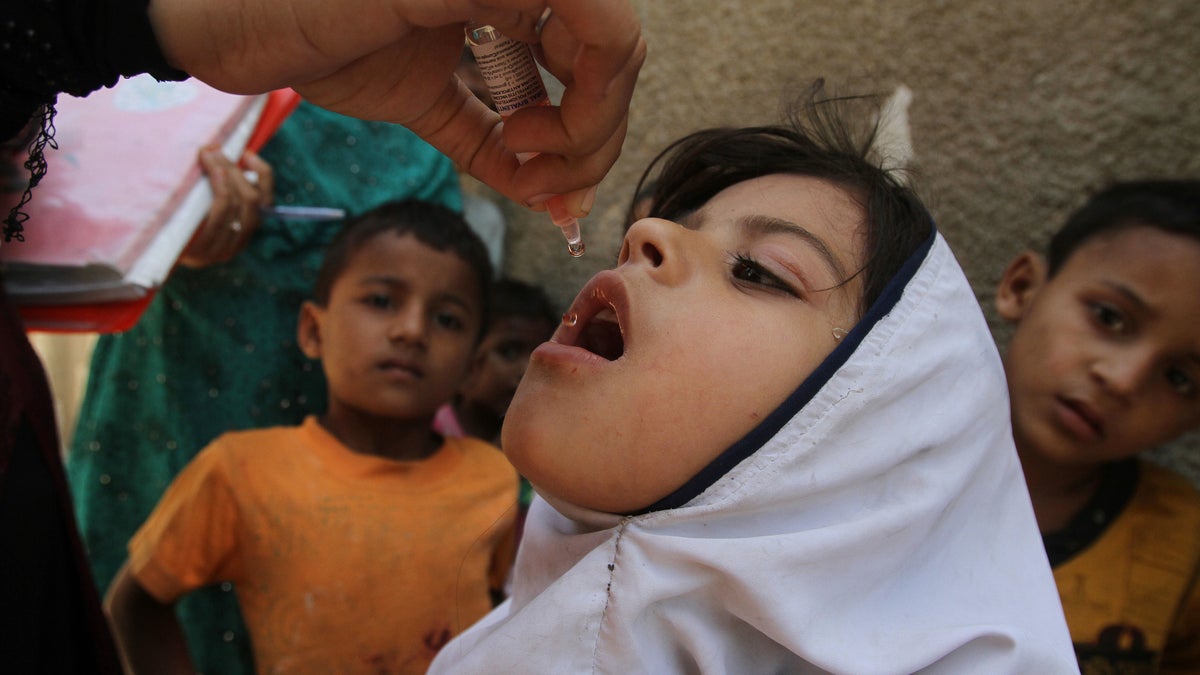
FILE - In this April 21, 2016 file photo, a Pakistani health worker gives a polio vaccine to a girl during a campaign in Karachi, Pakistan. For the first time in Pakistan's history all the previous month's environmental samples for polio have tested negative, a sign of progress in the campaign to eradicate the virus, an official said Monday, May 30, 2016. (AP Photo/Fareed Khan, File)
LONDON (Thomson Reuters Foundation) – Pakistan, one of three countries with endemic polio, began an immunization campaign this week in the city of Quetta for children under five after the discovery of a rare strain of the virus in sewage samples, officials said.
No cases of the rare Type 2 strain have been reported in humans in Quetta but it has been added to the vaccine as a precaution. The more common type of polio is Type 1, with no human cases of Type 2 reported for more than a decade.
Here are some more facts on polio:
Poliomyelitis, or polio, is a viral disease of the brain and spinal cord that can cause irreversible paralysis in a matter of hours.
* There is no cure for polio, it can only be prevented. Polio vaccine, given multiple times, can protect a child for life. Vaccines can be oral or injected.
* The virus is transmitted from person to person through the ingestion of faeces from contaminated hands, food or water.
* Polio mainly affects children under five years of age. One in 200 infections leads to irreversible paralysis, usually in the legs.
* Among those paralyzed, 5 percent to 10 percent die when their breathing muscles become immobilized.
* There were 35 reported polio cases at the end of 2016 compared with 350,000 cases in 1988.
* Pakistan is one of just three countries in the world, along with Afghanistan and Nigeria, that have endemic polio, a once-common childhood virus that can cause paralysis or death.
* Immunization efforts in Pakistan have in the past been hampered by Islamist militants who believed the campaigns were a cover for Western spies.
* As long as one child remains infected, all children are at risk. If polio is not completely eradicated, 200,000 new cases each year could crop up within 10 years globally.
Source: Reuters, World Health Organization, Global Polio Eradication Initiative
